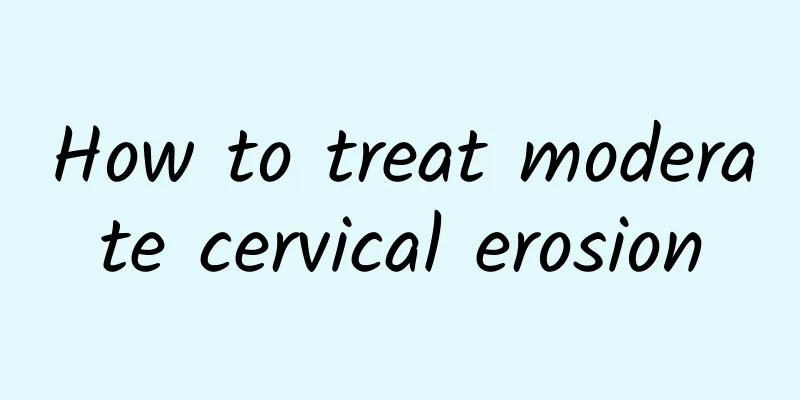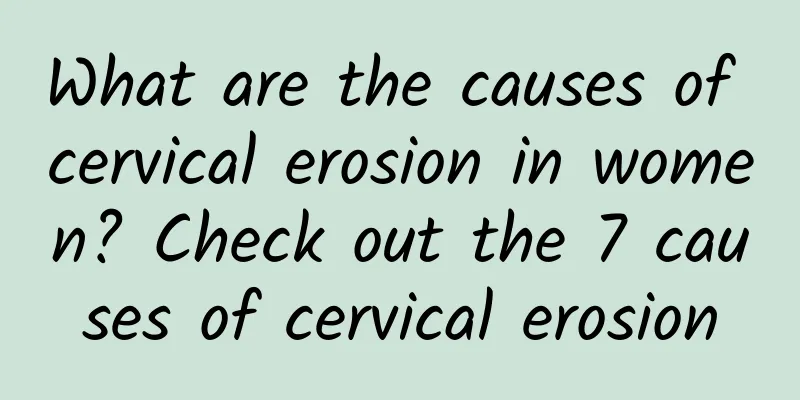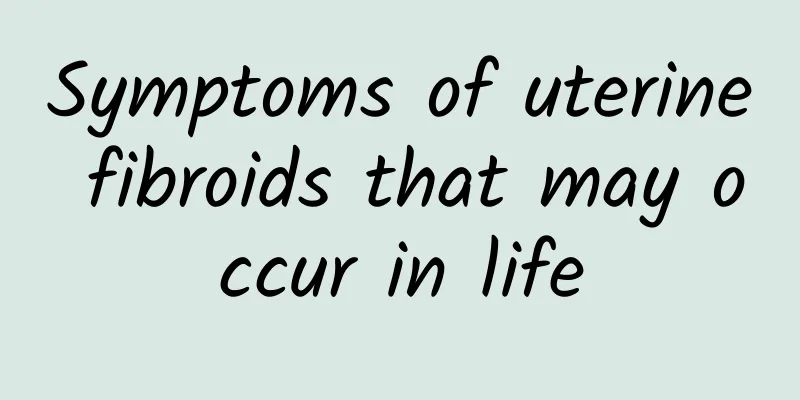How to treat moderate cervical erosion

|
Moderate cervical erosion can be improved through medication, physical therapy, and surgery. The specific method should be selected according to the patient's condition and the doctor's advice. Cervical erosion is a common gynecological disease. Moderate erosion usually manifests as red erosions on some areas of the cervical surface, which may be accompanied by increased leucorrhea and contact bleeding. The goal of treatment is to relieve symptoms, prevent the progression of the disease, and prevent complications. 1. Drug treatment: Drug treatment is suitable for patients with mild symptoms or who are temporarily unsuitable for physical therapy. Commonly used drugs include anti-inflammatory drugs, antibacterial drugs and drugs that promote cervical repair. For example, metronidazole tablets are used to fight infection, and recombinant human interferon α2b gel helps inhibit viral replication and promote cervical tissue repair. Drug treatment should be carried out under the guidance of a doctor to avoid adverse reactions caused by self-medication. 2. Physical therapy: Physical therapy is a common method for moderate cervical erosion. It mainly destroys eroded tissue through high temperature, freezing or laser, and promotes the regeneration of healthy tissue. Common physical therapy methods include electrocoagulation, cryotherapy and laser therapy. Electrocoagulation burns the eroded surface with high-frequency electric current, cryotherapy uses liquid nitrogen to freeze and destroy the diseased tissue, and laser therapy uses high-energy laser beams to accurately remove the eroded area. Physical therapy usually takes 1-2 times to be effective, and attention should be paid to rest and local care after surgery. 3. Surgical treatment: For patients who are not well treated with medication and physical therapy or whose condition is more serious, surgical treatment may be required. Common surgical methods include cervical conization and loop electrosurgical excision procedure. Cervical conization removes cervical lesions for pathological examination, while loop electrosurgical excision procedure uses an electric knife to circularly excise the lesion area. Surgical treatment is more traumatic, and recovery and reexamination must be strictly followed according to the doctor's instructions after surgery. Patients with moderate cervical erosion should pay attention to personal hygiene in their daily life, avoid using irritating lotions, and keep the vulva clean and dry. In terms of diet, it is recommended to consume more foods rich in vitamins C and E, such as citrus fruits, nuts and green leafy vegetables, which can help enhance immunity and promote cervical repair. Avoid excessive fatigue and mood swings, and maintain good living habits and mentality. Although moderate cervical erosion is not a serious disease, if it is not treated in time, it may cause complications such as cervicitis and cervical polyps, and even increase the risk of cervical cancer. Patients should go to the hospital for professional examination and treatment as soon as possible, and choose a treatment plan that suits them according to the doctor's advice. Regular gynecological examinations and attention to cervical health are the key to preventing the recurrence and deterioration of cervical erosion. |
<<: How long does it take to restore menstruation after hysteroscopic surgery for endometrial polyps
>>: Is it good to take Chinese medicine for chronic adnexitis?
Recommend
Consumer Foundation: There are still deficiencies in labeling the origin of American beef with ractopamine
After more than half a year of public opinion and...
Delayed menstruation and noticeable breast enlargement
Delayed menstruation and noticeable breast enlarg...
Will vaginal candidiasis affect pregnancy?
Will candidal vaginitis affect pregnancy? Will ca...
Correctly understand the harm of hyperprolactinemia
Diseases will cause some harm. What troubles wome...
What are the dangers of endometriosis and what are its characteristics?
Endometriosis is a relatively serious disease, wh...
What tests should be done for miscarriage
Pregnant women who do not want to have children o...
Is third-degree cervical erosion serious? Third-degree cervical erosion can cause these harms
Cervical erosion is a common gynecological diseas...
A brief analysis of common precautions for adnexitis
Among various gynecological diseases, adnexitis i...
What foods are not suitable for people with uterine fibroids?
What kind of food can't people with uterine f...
The harm of ovarian cysts to women
The ovaries are very important reproductive organ...
What are the examination items for menopause?
I believe that more and more people understand th...
Introduction to Common Methods of TCM for Treating Irregular Menstruation
To regulate irregular menstruation, we must first...
What are the more likely causes of uterine fibroids?
The incidence of uterine fibroids is very high. M...
Explanation of the causes of several easily overlooked adnexitis
There are many female patients with adnexitis. Am...
How to prevent recurrence of cervicitis?
Many women will encounter the problem of recurren...









